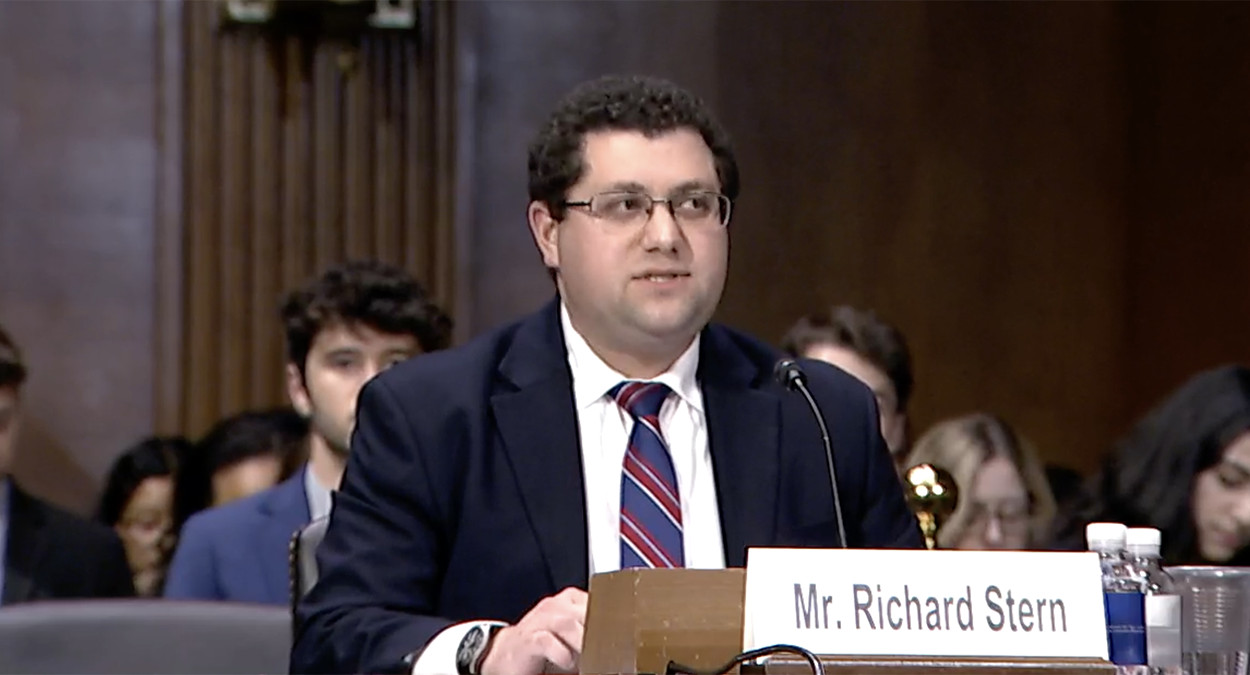Wrecking the American Dream: The Problem With Today’s Economy
Our economic leadership often is discussed by way of dollars, but it’s about much more than that. It’s about the well-being of the American people.... Read More The post Wrecking the American Dream: The Problem With Today’s Economy appeared first on The Daily Signal.

Our economic leadership often is discussed by way of dollars, but it’s about much more than that. It’s about the well-being of the American people.
The economy has one purpose—to organize our labors to produce the goods and services that households need and desire. After all, the root word of economics refers to the household, which is the foundation of society.
Though much of the conversation here will be about competition, there is another way to frame it: freedom. The freedom to build, to innovate, and to decide what your family needs to thrive. It is through economic freedom that a healthy competitive market arises.
The economy isn’t a singular thing. It’s the collection of the work we all do in service to each other. That’s what gross domestic product is, not a dollar figure but rather a measure of some of the work we do for those around us.
This process produces the products that enrich and extend the length and quality of our lives while preserving the resource that is truly most scarce—our time. Perhaps the greatest blessing of a dynamic economy is that it frees our time to be spent with our families and in our communities.
Economic freedom allows us to use price signals to properly coordinate our work across billions of people the world over. It fosters the delicate process of experimentation and innovation required to improve quality of life and save time.
With our families and communities on our minds, people are naturally risk-averse. The economic structures produced by free peoples in free markets lean toward stability and resilience all on their own. Risk aversion is itself something of value.
However, these organic, prosperity-producing systems share the road with another entity, an entity that has the power to steamroll over road and sidewalk alike: the government.
The work of Greg Werden, a Mercatus scholar and former chief policy economist of the Justice Department‘s Antitrust Division, highlights a stark example. Federal antitrust policy of the 1960s sought to make virtually all vertical contractual restraints and vertical mergers illegal.
This policy had a disastrous impact on the ability to coordinate and produce resilient and innovative production chains, leaving our industry famously vulnerable in the decades that followed. This policy created chaos masquerading as competition.
Perhaps counterintuitively to some, large market share does not make you immune to competition. My own tenure as a Hill staffer was long enough to see efforts to regulate Walmart morph into efforts to protect companies such as Walmart from Amazon.
Blockbuster, of course, once had an impressive hold over the videotape rental market, and its one remaining store probably still does. However, most consumers have moved on to newer forms of content.
The common denominator here isn’t government action coming to the rescue. It’s the constant march of technological progress that freed American families from the limitations of the past.
We must be humble with how we wield the power of government. As a force monopolist, government isn’t checked by the limits we place on each other in a free market. Government isn’t accountable to the delicate process of coordination and innovation that improves quality of life.
Americans’ increasing sense of economic malaise may be traced back to the reckless use of government.
Until the Tax Cuts and Jobs Act of 2017, our tax system had been among the most punitive of investment and complex on the planet. Meanwhile, federal spending has driven the dollar’s value down by 45% over the last generation.
The government’s crowding out has added $350,000 in interest costs to a new, median-price home mortgage and denied many the dream of owning their own business.
Our regulatory state has strangled growth to the tune of perhaps $53,000 per household per year of lost quality of life.
These barriers to entry are especially acute for small and innovative businesses. In-house corporate lawyers and accountants offer benefits that no corner diner has access to. Many subsidies and regulations favor particular businesses over those of their competitors.
As a nation, we have properly romanticized the role of an innovator tinkering in their garage, from Henry Ford to Steve Jobs. With these government barriers, are we truly surprised that we’ve lost our economic resiliency and leadership?
If our efforts today are to be successful, we must carefully examine the most anti-competitive and most well-entrenched monopoly that exists: the government.
This is a lightly edited version of Stern’s June 5 testimony before the Senate Judiciary subcommittee on competition policy, antitrust, and consumer rights.
The post Wrecking the American Dream: The Problem With Today’s Economy appeared first on The Daily Signal.










